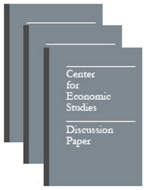
An official website of the United States government
Here’s how you know
Official websites use .gov
A .gov website belongs to an official government organization in the United States.
Secure .gov websites use HTTPS
A lock (
) or https:// means you’ve safely connected to the .gov website. Share sensitive information only on official, secure websites.
-
//
- Census.gov /
- Library /
- Census Working Papers /
- Hierarchies, Specialization, and the Utilization of Knowledge: Theory and Evidence from the Legal Services Industry
Hierarchies, Specialization, and the Utilization of Knowledge: Theory and Evidence from the Legal Services Industry
Hierarchies, Specialization, and the Utilization of Knowledge: Theory and Evidence from the Legal Services Industry
Abstract
What role do hierarchies play with respect to the organization of production and what determines their structure? We develop an equilibrium model of hierarchical organization, then provide empirical evidence using confidential data on thousands of law offices from the 1992 Census of Services. The driving force in the model is increasing returns in the utilization of acquired knowledge. We show how the equilibrium assignment of individuals to hierarchical positions varies with the degree to which their human capital is field-specialized, then show how this equilibrium changes with the extent of the market. We find empirical evidence consistent with a central proposition of the model: the share of lawyers that work in hierarchies and the ratio of associates to partners increases as market size increases and lawyers field-specialize. Other results provide evidence against alternative interpretations that emphasize unobserved differences in the distribution of demand or “firm size effects,” and lend additional support to the view that a role hierarchies play in legal services is to help exploit increasing returns associated with the utilization of human capital.
Others in Series
Working Paper
Working Paper
Working Paper
Share
Related Information
Some content on this site is available in several different electronic formats. Some of the files may require a plug-in or additional software to view.
 Yes
Yes
 No
NoComments or suggestions?


Top

